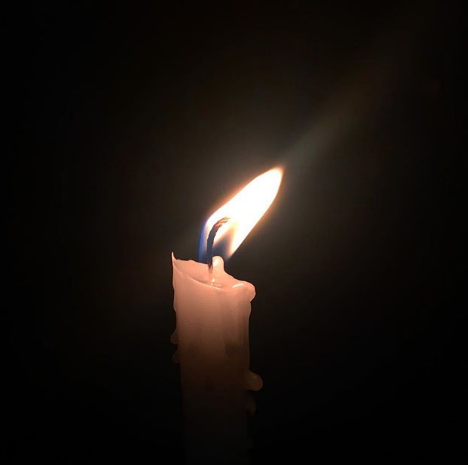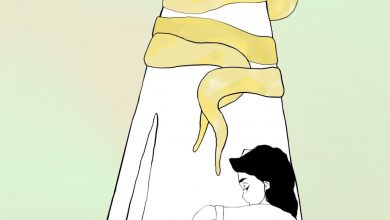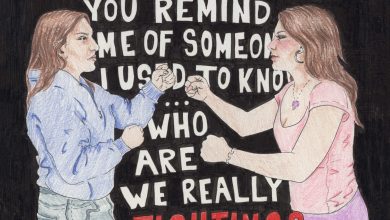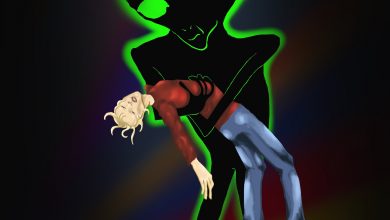An Honest Note on Anti-Semitism After Pittsburgh

A candle at the Los Angeles vigil for Pittsburgh. Photo courtesy of author.
My high school is located on what is likely the most Jewish strip of real estate in Los Angeles — two Jewish day schools, a synagogue, a rabbinical school, and a Jewish heritage museum, all clustered around one 405 exit. As students, we would joke that if someone wanted to commit an anti-Semitic hate crime — as one man did in 1999, when he tried unsuccessfully to bypass security gates at our school before changing course and shooting five people at the Los Angeles Jewish Community Center — we were sitting ducks. I reiterate: we said this in the nonchalant way one learns to talk about the ever-present threat that their identity poses to their physical safety, lighthearted enough to qualify as a joke.
In the past several years, I have taken to speaking about Judaism as a whole with a similar undercurrent of self-deprecation. As I grew in my awareness of the variety of ways my people are simultaneously oppressed and oppressor, loathed by the likes of David Duke but also privileged in the aggregate with whiteness, wealth, and political leverage in the United States, I became increasingly uncomfortable with the idea of framing Jews as anything but allies in the arena of social justice.
For example, I am acutely aware that while the very real prospect of hate-fueled violence necessitated full-time security and at least three gates at my Jewish day school, the knowledge that those security guards were there to protect rather than incriminate me was a privilege not afforded to many students of color. I question the utility of the statistic that Jews experience more hate crimes than any religious minority in the U.S. when post-9/11 America is an ongoing hate crime against the Muslim community. I understand that it is difficult if not impossible to untangle the wires of Zionism from my diaspora community, and that accusations of anti-Semitism are frequently leveraged to silence legitimate critiques and protests of Israel, to the point where the word feels cheap. I bristle at the centering of the Holocaust in the annals of genocide, sitting uneasily in a space cleared by the erasure of imperial massacres of people in the Global South.
The news that 11 people were shot at morning services in a Pittsburgh, PA synagogue has a way of making those reflexive disclaimers feel bitter in one’s mouth. It is impossible to ignore that for centuries, up until the present moment, the Jewish people have existed in public space as a collective apology. Maybe my impulse to make my religion more palatable to the people around me is an inherited one.
Struggling with this uneasiness is currently the most meaningful way I feel I can honor Saturday’s victims. I am grappling, for example, with the fact that FEM, a newsmagazine otherwise thoroughly comprehensive in its analysis of intersecting oppressions, has published only one article about anti-Semitism in the past five years. I struggled to respond when, in the midst of a solidarity event for the Jewish community on Bruin Walk, a student felt it was the appropriate time to ask my opinion on the Israeli-Palestinian conflict; I am becoming intimately familiar with the tongue-tied indignity in the pit of my stomach when people carve caveats out of our grief, mediating their solidarity posts with “except for Zionists.” Let us count the ways in which Jewish people are still made to feel unworthy and unwelcome.
An eternal truth: prejudice, whether it be racism, misogyny, or anti-Semitism, is a formidable shapeshifter. Jews have been alternatively silenced and slaughtered throughout the years because we are allegedly “communists, capitalists, foreigners, residents, immigrants, elitists, have strange ways, are too assimilated, bankroll the left (George Soros) or bankroll the right (Sheldon Adelson),” as Rabbi David Wolpe wrote in TIME. Feminist geographer Ruth Wilson Gilmore defines racism as the degree of one’s vulnerability to premature death. This definition does not prescribe when or how or why this vulnerability occurs. Eleven Jews were killed by a white supremacist on Saturday and two Black people were shot by a white supremacist on Wednesday — tragedies no different in their gravity.
I am heartened by the support that the Jewish community is receiving from other marginalized groups that are standing in solidarity without disclaimers. But I can’t shake the feeling that it takes a spectacle of tragic, public violence to lift anti-Semitism to anything more than an afterthought in the realm of social justice.
There are a lot of ways that non-Jewish people who care about justice can show their support right now — voting for progressive candidates on Nov. 6 is one, as is donating to HIAS, the refugee organization that helped many members of my Iranian Jewish community immigrate to the U.S. and stirred the xenophobic hatred of the Pittsburgh shooter.
But I ask that we also begin a serious reckoning with the line between asking for accountability and apology from the groups that exist in the vast, complex space between oppressed and oppressor. Some eternal truths: it helps nobody to draw circles around the types of oppression that deserve our concern, and no one ever needs to earn the right to mourn.




